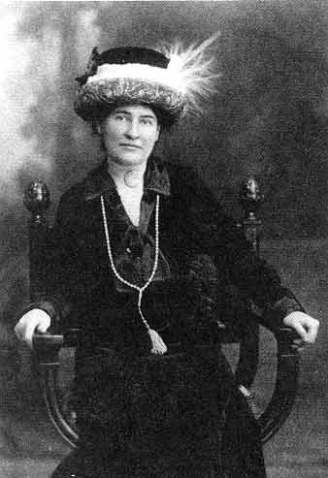A quick study on Willa Cather’s multilayered style for a writer I was mentoring:
You don’t need endless modifiers to draw a believable character, but a well placed adjective or adjective, combined with telling detail, can sometimes do double duty, both setting the stage and establishing the actors. Here are two random passages (the first from near the beginning and the second from closer to the end) of a Willa Cather short story. The first, though as formal in style as the one that follows, is rather more spare than the second, in which modifiers are layered one atop another as the daughter-in-law struggles to determine what it is about Rosicky that makes him so different from other farmers—other people—that she has known:
1. With Mary, to feed creatures was a natural expression of affection,—her chickens, the calves, her big hungry boys. It was a rare pleasure to feed a young man whom she seldom saw and of whom she was as proud as if he belonged to her. Some country housekeepers would have stopped to spread a white cloth over the oilcloth, to change the thick cups and plates for their best china, and the wooden-handled knives for plated ones. But not Mary.
“You must take us as you find us, Doctor Ed. I’d be glad to put out my good things for you if you was expected, but I’m glad to get you any way at all.”
He knew she was glad,—she threw back her head and spoke out as if she were announcing him to the whole prairie. Rosicky hadn’t said anything at all; he merely smiled his twinkling smile, put some more coal on the fire, and went into his own room to pour the Doctor a little drink in a medicine glass. When they were all seated, he watched his wife’s face from his end of the table and spoke to her in Czech. Then, with the instinct of politeness which seldom failed him, he turned to the Doctor and said slyly: “I was just tellin’ her not to ask you no question about Mrs. Marshall until you eat some breakfast. My wife, she’s terrible fur to ask questions.”
2. “I like mighty well to see dat little child, Polly,” was all he said. Then he closed his eyes and lay half-smiling. But Polly sat still, thinking hard. She had a sudden feeling that nobody in the world, not her mother, not Rudolph, or anyone, really loved her as much as old Rosicky did. It perplexed her. She sat frowning and trying to puzzle it out. It was as if Rosicky had a special gift for loving people, something that was like an ear for music or an eye for colour. It was quiet, unobtrusive; it was merely there. You saw it in his eyes, —perhaps that was why they were merry. You felt it in his hands, too. After he dropped off to sleep, she sat holding his warm, broad, flexible brown hand. She had never seen another one in the least like it. She wondered if it wasn’t a kind of gypsy hand, it was so alive and quick and light in its communications,—very strange in a farmer. Nearly all the farmers she knew had huge lumps of fists, like mauls, or they were knotty and bony and uncomfortable-looking, with stiff fingers. But Rosicky’s was quicksilver, flexible, muscular, about the color of a pale cigar, with deep, deep creases across the palm. It wasn’t nervous, it wasn’t a stupid lump; it was a warm brown human hand, with some cleverness in it, a good deal of generosity, and something else which Polly could only call “gypsy-like,”—something nimble and lively and sure, in the way that animals are.
—“Neighbor Rosicky,” Willa Cather
The first passage is deceptively simple—no fancy words, no poetic metaphors, no drawn-out belaboring of metaphors to describe the scene. But I say deceptive because that’s exactly the “trick” Cather is using, if you want to call it that. Her words and sentences are simple, straightforward, and as plain as Mary’s everyday tableware…because that is the Rosicky household stripped to its essence. The point of view is omniscient (typical of the times; this was published in 1932), though you are barely aware of the fact as you are reading it as it all seems very natural because Cather doesn’t stay inside any one character’s head for long; what she does is more like eavesdropping, or peeking around corners. Anything else would weigh down the story and complicate the sense that these are what many of us rural folks call “good people,” two bland words that nevertheless carry reams of nuanced meaning.
The second passage has an entirely different feel, yet you can still feel Cather’s deft touch with the language, again choosing everyday words and images (after all, she is still describing the same family—in this case, the eponymous main character), but stringing them together in an entirely different way. But again, the simplicity is deceptive. If you compare the cadence of this passage to that of the first, you get a different feel altogether. The first passage is matter-of-fact, homespun, declarative sentences. Cather balances long sentences with short ones, but none of them are particularly intricate or complex. There’s a certain rough poetry in her choice of details (the oilskin everyday tablecloth, the liquor in a medicine glass, big hungry boys lumped together with chickens, calves, and other “creatures”), but the narrator (Cather) is saying, it is what it is. The second passage, though, is packed with poetic imagery, metaphors, and speculation. Whereas the first passage places us in a country kitchen with farmer folk and the local doctor, the second on thrusts us into someone’s head (Polly, the daughter-in-law) and keeps us there while she flounders for just the right word, the right metaphor, the essence of Rosicky. She picks one, then another, stringing them together not just with commas but with ands (“alive and quick and light in its communications”…“nimble and lively and sure, in the way that animals are”) because when you’re groping for just the right word, that’s how they sift up: one, then another, then another…. The pace of the ever-changing imagery flings us headlong forward in a way that the casual pace of the first passage did not, which makes sense given what happens next.
Ostensibly Polly is talking about Rosicky’s hand, but in reality she is struggling to decide what Rosicky himself is all about. The next lines after that paragraph tell us that Cather isn’t just blathering on about hands for no reason: “Polly remembered that hour long afterwards; it had been like an awakening to her. It seemed to her that she had never learned so much about life from anything as from old Rosicky’s hand. It brought her to herself; it communicated some direct and untranslatable message.” He dies, of course, soon after. But because we have learned so much about him and his family, we know that these are not people who will be beaten down by grief and loss (as some others are in the story) but who will be grateful to have known him and for learning from him how to live well (“I’d rather put some colour into my children’s faces than put money in the bank,” Mary says earlier). It all foreshadows the final scene where the Doctor heads out to the farm a few weeks after Rosicky has died, but stops before he gets there by the “beautiful” graveyard that the farmer himself first described earlier on. The Doctor compares the “arranged and lonely” graveyards of the city with this place that is open and free, with neighbors passing by, and Rosicky’s own cattle grazing in a nearby field. The last lines: “Nothing could be more undeathlike than this place; nothing could be more right for a man who had helped to do the work of great cities and had always longed for the open country and had got to it at last. Rosicky’s life seemed to him complete and beautiful.”
That’s a lot of people and place packed into two passages.

